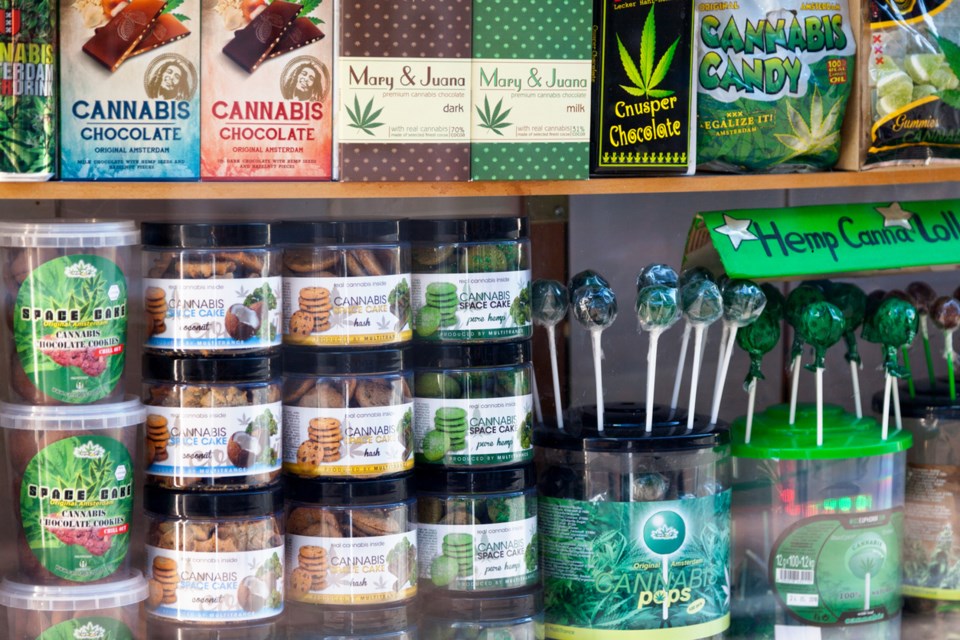Cannabis edibles, extracts and topicals could be sold in B.C. stores as early as Dec. 16, the federal government announced June 14.
The December launch date is calculated by being 60 days after regulations for those products coming into force on Oct. 17. Licensed producers must give Health Canada 60 days notice that they intend to sell those products.
The reality, however, is that these products will take longer to get to retail stores because federally licensed processors will need time to become familiar with, and to prepare to comply with, the new rules and to produce new products.
Provincially or territorially authorized distributors and retailers will also need time to purchase and obtain the new products and make them available for sale, according to Health Canada.
The new products will fall under three main categories:
- edible foods and drinks
- extracts
- topicals, such as lotions, oils and makeup.
Some of the new restrictions were expected given Health Canada releasing draft regulations in February. The maximum amount of the active ingredient in cannabis, tetrahydrocannabinol (THC), per package will be 10 milligrams, for example. Another expected restriction is that cannabis-infused beverages that contain either alcohol or tobacco, nicotine or caffeine will be prohibited.
Packaging requirements will include labelling that has a clear cannabis symbols as well as health warnings and plain packaging with limited use of logos and colours. Those packages must be child resistant.
Vaping products will not be allowed to contain sugar, or other sweeteners or colourants.
Restaurants will not be able to sell cannabis-infused meals although the possibility exists for a Canadian business to sell edibles to a customer who could consume the product onsite. Regulating such consumption lounges would be up to the provinces, and B.C. has said that all retail businesses that sell cannabis are not able to sell non-cannabis-related items — a restriction that would almost certainly disqualify a restaurant in this province.
If a restaurant were to serve a cannabis edible, federal restrictions include that the product be shelf-stable, come in child-proof packaging and be labelled as it would be in a retail store. So the food item could be a packaged cookie, but not an infused shepherd's pie.
Whether specific edible products, such as gummi bears, will be allowed to be sold even in retail stores remains to be seen. Health Canada may deem that specific product to be appealing to youth, which is specifically forbidden under the Cannabis Act.
"It's really hard to answer [whether gummi bears would be allowed] in the abstract but if you are asking 'If a gummi bear is appealing to a young person, would that be permitted?' the answer is, 'No,'" a Health Canada official who was not to be named said on a June 14 conference call.
"A gummi bear that is appealing to kids is prohibited by the act and it's an offence that is punishable by very serious consequences."
Indeed, selling cannabis-infused products that are appealing to kids could net the offender a three-year jail term and a $5-million fine.
"The determination of whether or not a product is appealing to a young person needs to consider a range of factors,” the Health Canada official said.
- Its shape. Is it shaped like a bear?
- Its colour. Is it a bright primary colour? Is it fluorescent?
- Its smell.
- Its flavour
- What it's called
- How it's packaged
- How it's labelled
- How it is presented to consumers.
The official said that Health Canada will consider all of those factors on a case-by-case basis to conclude whether the product was designed to be appealing to kids.
He added that consultations on whether to allow sales for CBD-based products outside authorized retail cannabis stores, such as in drug stores, are yet to be held.



